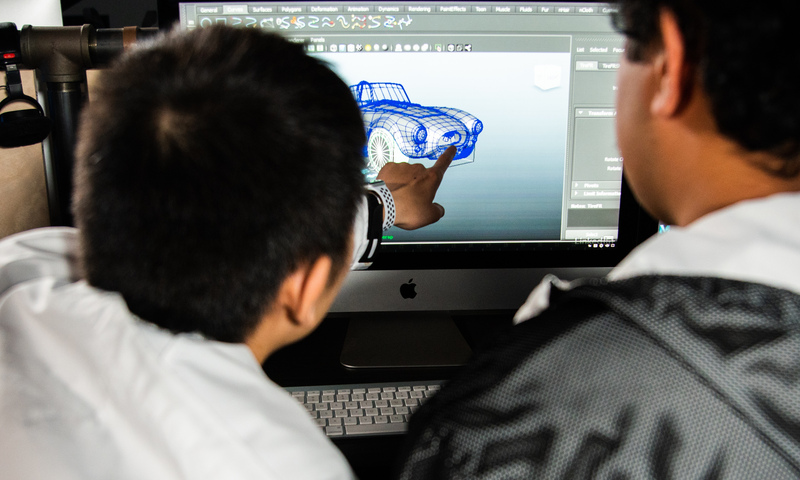Media Production is a collaborative hands-on major at Biola University’s Snyder School of Cinema and Media Arts. Due to the pandemic, the school had to quickly switch gears and find innovative ways to deliver a cinema and media arts education remotely this fall.
“Cinema and Media Arts faced a very difficult challenge when Biola had to go remote in the fall. The majority of our program is project and lab based with students using production equipment and studios all the time,” said Associate Dean of Cinema and Media Arts, Gerald Fisher.
Needing to pivot quickly due to higher education and film industry shifts during the pandemic, Biola’s cinema and media arts school developed a new course on virtual remote production just weeks prior to the start of the semester. Implementing a new course and creating new weekly gatherings for cinema and media arts, the school worked to keep community close — a hallmark of the film program — and weave new industry best practices into courses.
The addition of virtual lunches helped students get to know the recently hired new dean, Tom Halleen as well. The school also shipped a few computers to students in need and assisted others in getting access to necessary software for their courses. The cinematography course had to be restricted to students who lived in the area and could pick up cameras and lights for the class.
“We’ve been so impressed by our students,” said Halleen. “Remote learning is different and for some, difficult, but cinema and media arts students have demonstrated incredible adaptability, creativity, perseverance and community despite the remote season.”
The new Virtual Production Fundamentals course designed by Professor of Entertainment Producing Abel Vang, and Professor of Game Design Michael Steffen, offered students the chance to experience how the industry has responded during the pandemic when many films were put on pause or continued production online/virtually.
“As virtual production combines traditional filmmaking techniques with effects generated in a 3D game engine, Abel Vang and I have teamed up to co-teach this course. I teach the technical side, showing students how to create virtual worlds in Unreal Engine and connect their smartphone cameras so they are synced with the virtual environment,” said Steffen.
This course is completely new, designed to complement remote learning for the students this semester. Co-teaching the course, along with expert guests, brings in different aspects for the students to better engage in their study of this emerging technology.
“Abel then teaches the students how to get specific shots, bringing in classic cinematography as well as the latest trends in coverage of a scene,” said Steffen.
Students will focus on cinema practices, animation techniques, and game engine technology to create media projects that simultaneously combine real and virtual elements in-camera.
“With traditional filmmaking methods, executing what may seem to be a simple shot for a simple scene, can require special equipment and take many hours to set up,” said Vang. “When factoring in the real world costs, doing something very simple can take a toll on a production budget. With the Unreal Engine, students can create not just simple shots, but very complex camera movements — all within minutes without the requirement of special equipment or crew. I think that's where the real magic happens!”
Community is one of the strongest aspects of the Snyder School of Cinema and Media Arts according to Halleen. To enrich the community experience in the school while remote, Halleen implemented Family Thursdays for the school.
The weekly event gathers students and their families online for different activities such as a virtual game night, movie night, and industry guest speaker event that included speakers such as Rob Bredow, Senior Vice President of Industrial Light and Magic, and Charlie Collier, CEO of Fox Entertainment, among others. In addition, Halleen has hosted “Virtual Lunches with the Dean” for students and alumni virtual meet and greets.
“Faculty and staff rose to the occasion and worked hard to add or drop courses and make other changes to provide the best possible remote experience for our students,” Fisher said.
Despite the difficulties of remote learning, Halleen hopes this challenge can bring the students together to reinvent their process of learning and become industry leaders upon graduation.
“This will go a long way in their careers, as in every job interview from this day forward, they can reveal how they took on this challenge, owned it, and grew through it together. We’re all so proud of them,” Halleen said.
Apply or learn more about Snyder School of Cinema and Media Arts.
Written by Vanessa Morales, Biola Reporter Intern. For more information, contact Jenna Loumagne, assistant director of media relations and strategic communications, at jenna.loumagne@biola.edu.
 Biola University
Biola University
.jpg)
.jpg)